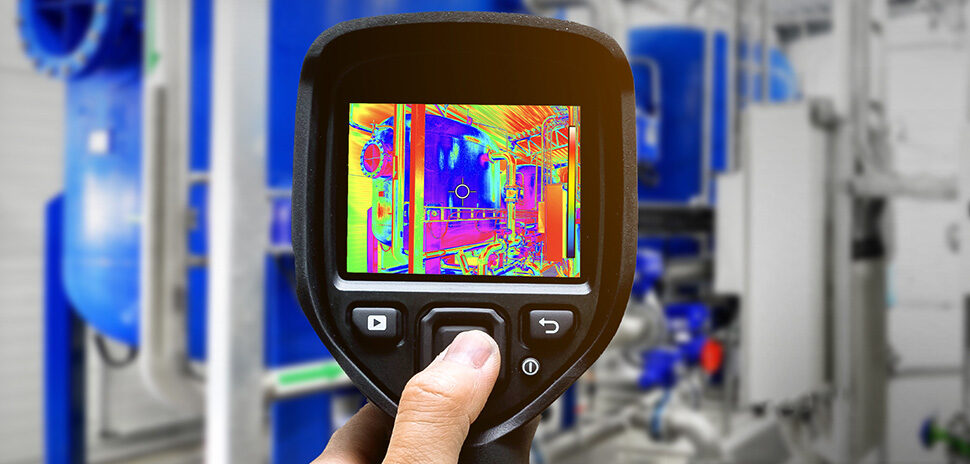Doug Peckover reads articles daily about how the Chinese and other hostile powers are trying to hack U.S. corporations to steal trade secrets.
The advent of quantum computing makes the threat even more imminent.
Even scarier, the U.S. response to this threat could take years—and by then, it could be too late. “The attacks have already started because they are doing what’s called ‘record now, break it later,’” Peckover says.
Peckover is the founder and chief scientist for VaultChain Security, a Dallas-based firm that’s quickly gaining prominence in the cybersecurity space. He is best known for founding DT Labs LLC in Dallas in 2005 where he patented token security, privacy, and compliance technology. His goal was to give people control over their data on third-party servers, which is used for Internet of Things and cloud applications.

[Photo: Rebeca Posadas-Nava]
Before that, he founded Privacy Inc., which provided privacy and security tools for corporations and individuals. He founded several other companies in Dallas, Canada, and Sydney, Australia as far back as the 1970s.
“Quantum computers aren’t ready just yet but they are definitely on the way,” he says. “We have to assume that our adversaries will have close to infinite computing power so math will no longer protect your data. We think they are way ahead of us but they are obviously not going to share everything that they’ve done.”
Encryption that would normally take millions of year to crack could be done in seconds with a quantum computer.
Peckover says the Chinese are outspending the United States 10 to 1 on quantum computing and algorithms to break encryption. Encryption is based on how data is stored, while his VaultChain technology is about where data is stored. If they can’t find, it, they can’t break it.
Peckover describes his solution as a “quantum-computer safe” technology that uses new ways to secure data in a way that’s impossible for hackers to reassemble. The Dallas-based company can secure data now, not in years.
VaultChain scatters the data among multiple micro vaults where the owner of the data is unknown. That way, nobody except the actual authenticated owner can reassemble the pieces.
The technology protects any kind of data, whether it’s personal, business, or a matter of national security. First, the user gets permission and is authenticated. From there on, the owner of the data is unknown, and it’s randomly fragmented into micro vaults where even the most powerful quantum computer can’t reassemble them into data with context or ownership.
Peckover likened it to French priests who hid various pieces of stained glass and art from Nazi invaders during World War II. No one person knew where all the pieces were and how they went back together. None of the individuals who had a piece knew where the others were or how they all fit together.
A potential cyberhacker would have to get past the authentication process, have access to the micro vaults, know which micro vaults to use, how to decrypt each one, and which fragments belong to the intended target. Even if they bypass that part, the data’s owner is unknown—so it’s data without context or value.
READ NEXT
26 North Texas Innovators Who are the Future Today
Learn more about VaultChain’s Doug Peckover and 25 others forging the future of tech in fields from biotech to the blockchain, artificial intelligence to the Internet of Things.
VaultChain is offered as a service to corporations. Like the French art, the data gets parsed out to multiple servers anonymously in such a way that no outsider could put them back together. VaultChain’s technology is relevant for everything from cloud applications, Internet of Things devices, social media, and legacy systems.
“We don’t care what type of data it is. We will protect it,” Peckover says.
One of VaultChain’s early customers is a cryptocurrency exchange that already paid $2.9 million in coins to keep its data safe. They will launch the service this month. VaultChain also has interest from customers in banking, aerospace, and government that could come on board next month, Peckover says.
The threat is real and the cost to companies continues to climb: the average cost of a data breach for a large corporation has risen to $3.8 million, while the chance of a data breach over the next two years is nearly 28 percent.
The threat for government agencies and defense contractors could compromise national security. Though officials in Beijing deny it, the new J-20 stealth fighter jet developed in China is believed to borrow design characteristics and traits from the U.S.-built F-22 Raptor fighter jet, meaning the Chinese hacked into U.S. defense contractor systems.
The hacker, Su Bin, pleaded guilty to being part of a group that was stealing secrets on the Fort Worth-built F-35 jet.
April 11 10:20 p.m.: An earlier version of this story incorrectly described VaultChain’s tech solution. Vaultchain does not use blockchain to encrypt data. Instead, the company is developing an alternative security technology that does not rely on encryption, according to Founder Doug Peckover. The story incorrectly stated that the most powerful quantum computer can’t reassemble the micro-vault fragments. In theory, they can, says Peckover, but the resulting data will have no owner or context. In addition, the average cost of a data breach is $3.8 million, not billion.
![]()
Get on the list.
Dallas Innovates, every day.
Sign up to keep your eye on what’s new and next in Dallas-Fort Worth, every day.































